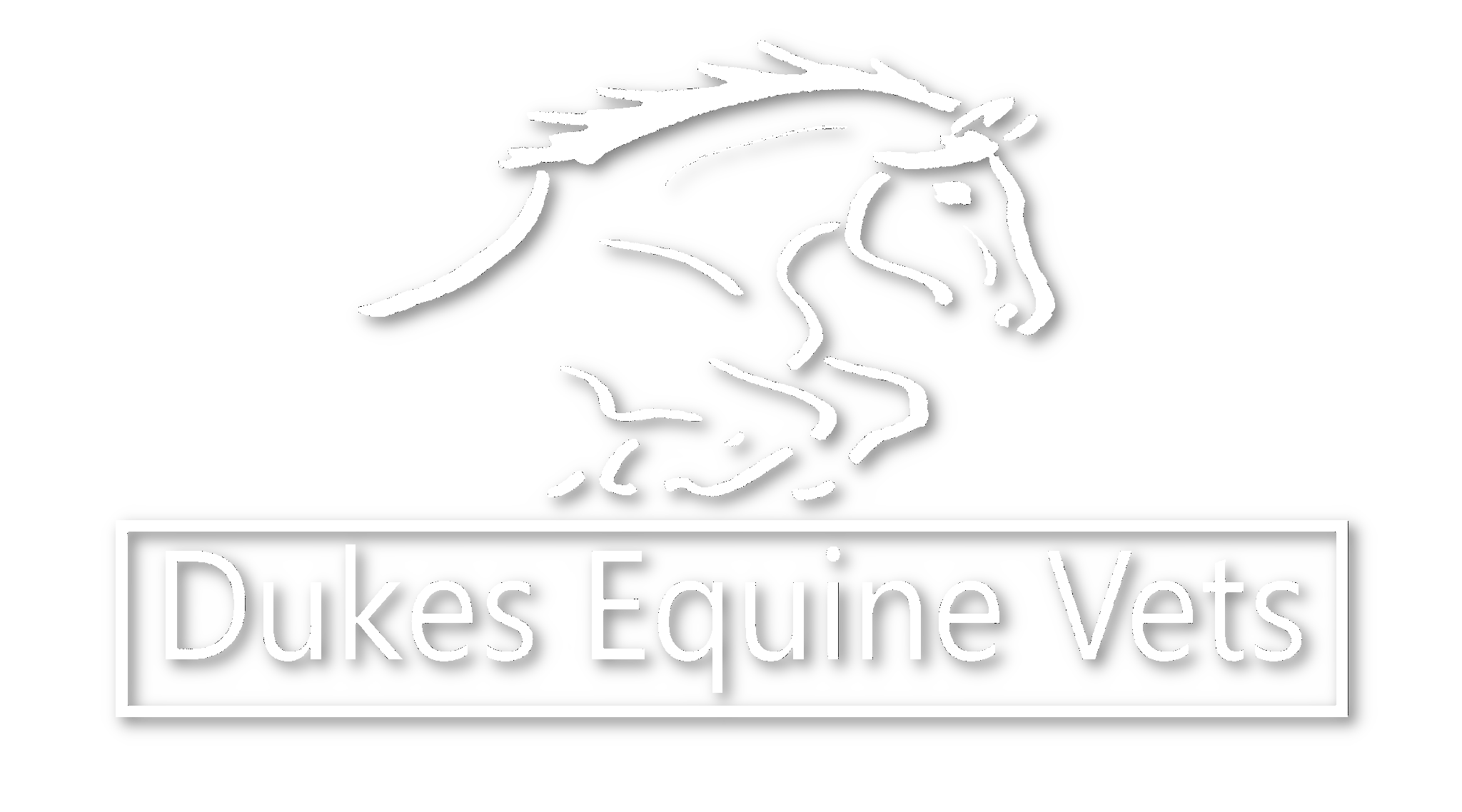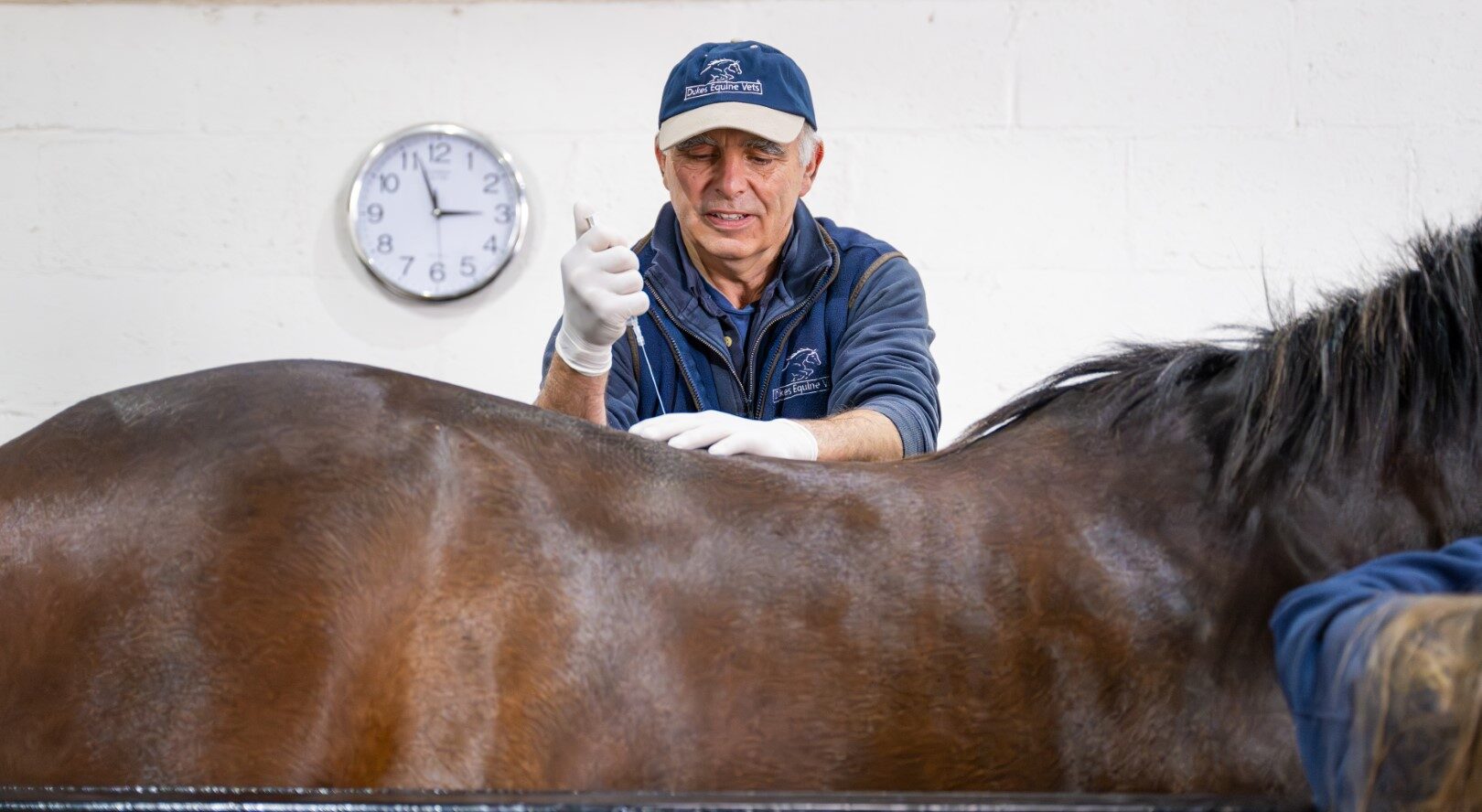
Lameness
We carry out lameness investigations at your yard if the facilities and horse’s temperament are suitable. In some cases, it is helpful to further investigate lameness cases at the clinic, where we have knowledgeable assistants, suitable facilities and the best equipment at hand.
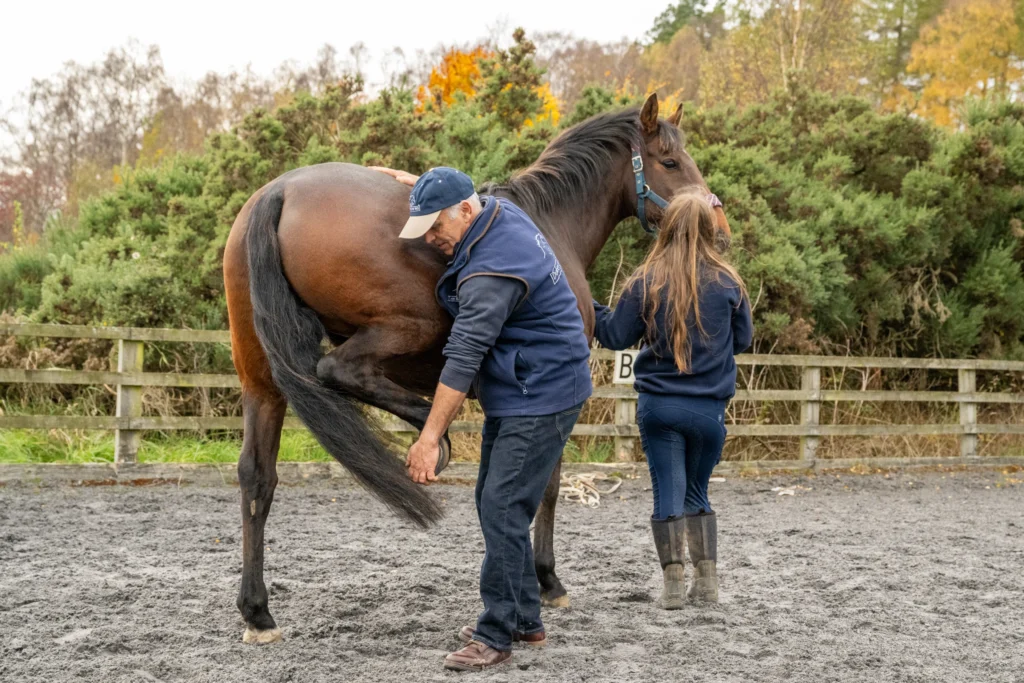
Lameness is evaluated by a combination of:
- Static and dynamic assessment – trot up on a straight line, lunge on soft/hard surfaces.
- Joint and nerve blocks.
- Diagnostic imaging – x-ray and/or ultrasound.
Our mobile, digital radiography machine (x-ray) provides high quality images which appear on the screen within seconds. We also use a mobile ultrasound scanner for tendons and ligaments.
We have recently invested in a gait analysis program, called Sleip, which provides objective data to substantiate our decisions based on the veterinary eye and support communication with clients about the horse’s movement and performance.
Dentistry
Every horse should have a routine dental every 6-12 months in order to maintain comfort in the horse’s mouth and so that teeth do not become excessively sharp. This also allows more severe problems, such as diastema or a fractured, displaced or infected tooth to be identified and treated. It is worth noting, that some insurance companies may not pay a claim for dental treatment if your horse’s routine dental treatments are not kept up to date.
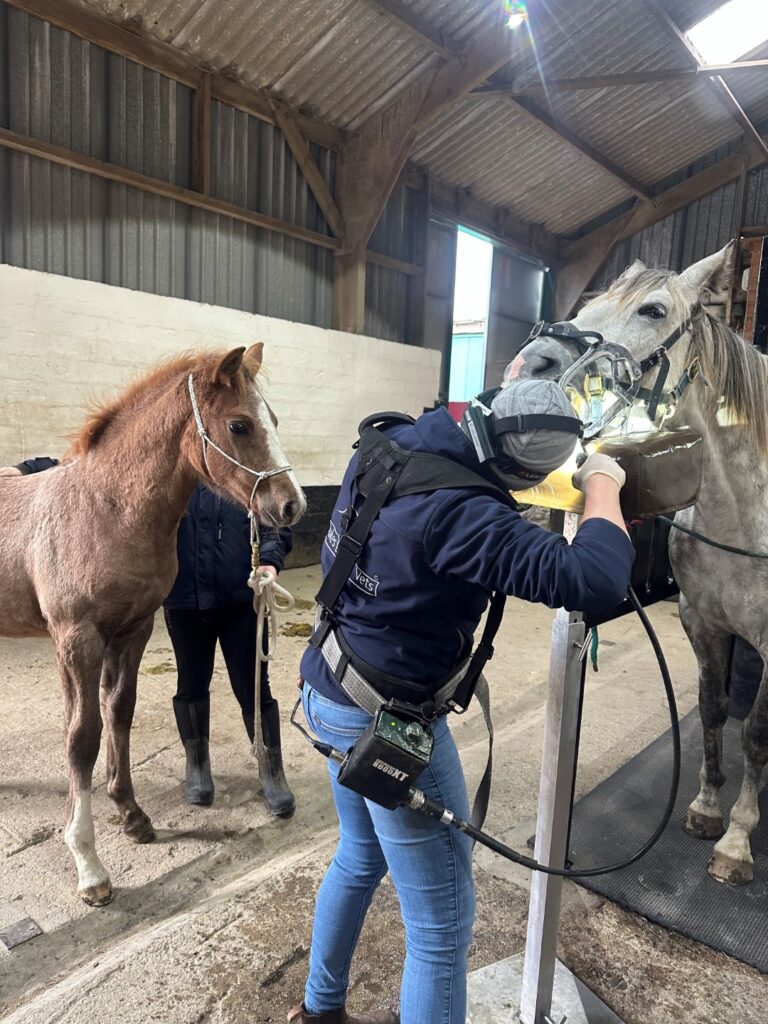
All of our vets have extensive experience in dentistry and have been on additional dentistry courses. Anna Skutznik has a CertAVP specialising in equine dentistry. We regularly carry out routine and complex tooth extractions and diastema widening at the clinic.
Medicine
Our knowledgeable team of equine vets have a wide range of experience, skills and knowledge for the investigation of medicine cases. Of course preventative healthcare is a key component of this, for example routine vaccination and use of a worm control program. Please contact the office to request a copy of our guidelines for worming.
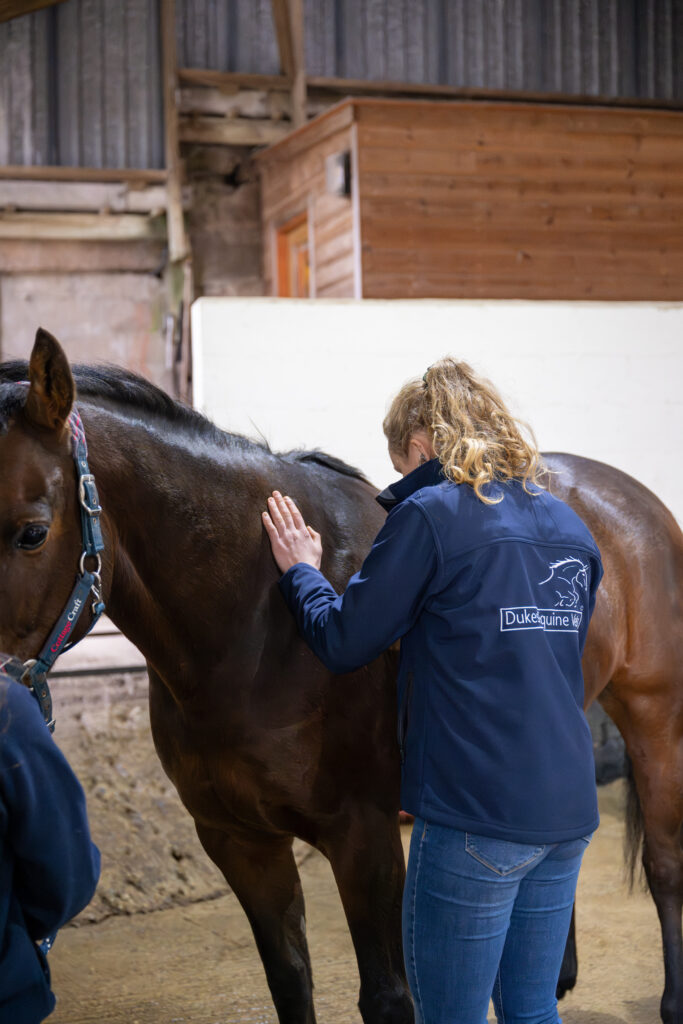
We have modern, portable diagnostic equipment for the investigation of medicine cases including a gastroscope and video endoscope.
Sarcoids
Sarcoids are a big worry for horse owners and we recommend treatment sooner rather than later before aggressive growth and to reduce the likelihood of the horse developing more sarcoids elsewhere.
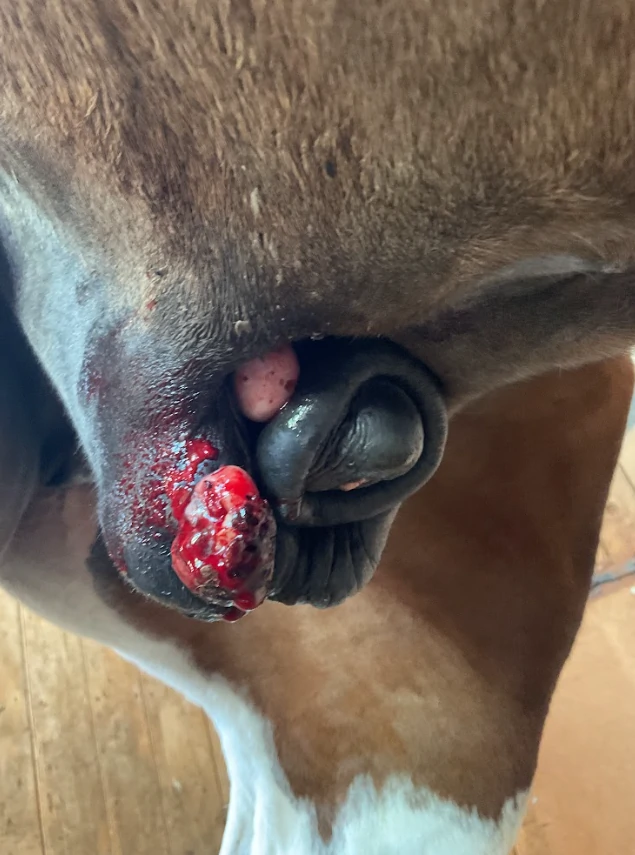
There are a large number of different sarcoid treatments on the market, which suggests that no one treatment is 100% effective. Many of the current treatments are expensive, ineffective and can cause pain and severe scarring with poor outcomes. However, within our practice, we have developed a protocol with excellent success rates. This involves a combination of minimal excision surgery, chemotherapy injection and cryotherapy (freezing with liquid nitrogen). With this method, we have had success in treating small sarcoids with low rates of recurrence, in addition to treating very aggressive sarcoids which have re-grown following other treatment methods in other practices. We have recently developed some variations to the protocol for difficult cases in horses with large numbers of sarcoids.
Breeding and stud services
At Dykehead Farm, Aboyne, we have a specialist breeding department for Artificial Insemination (AI), Embryo Transfer (ET), semen collection, preparation, chilling and freezing.
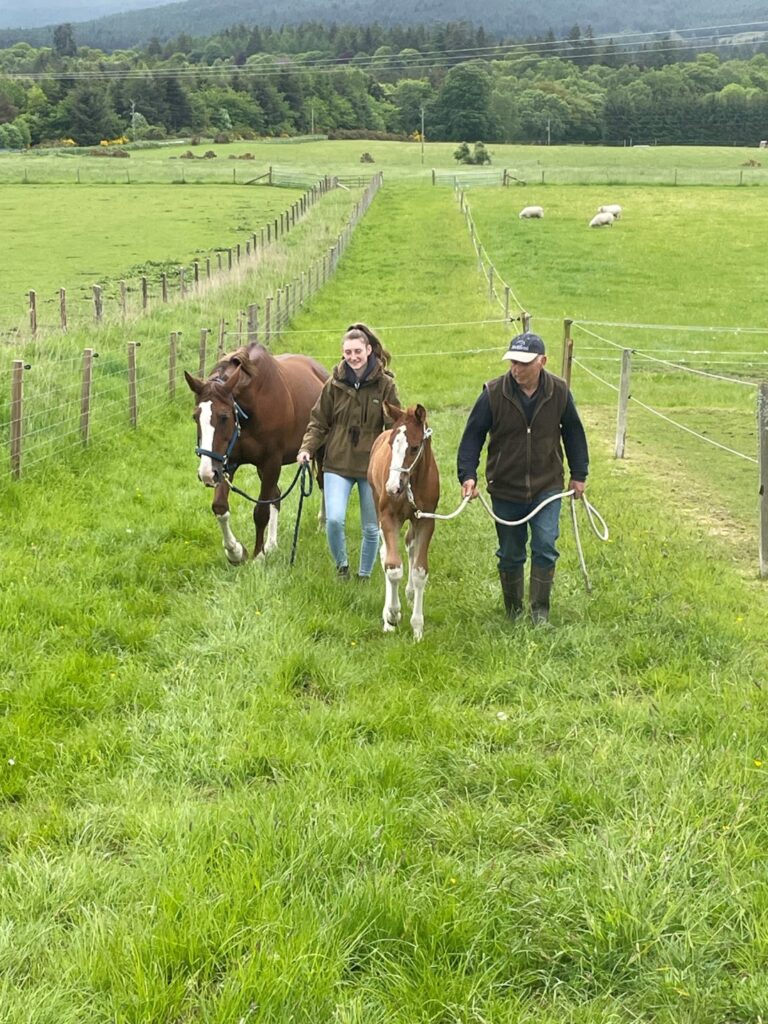
As founder of Dukes Vets, Jim has a vast experience in reproductive work over the last 21+ years and has spent time on advanced equine reproduction courses and visiting specialists in equine reproduction in Newmarket and abroad. At Dukes Vets, we have excellent success rates for AI with fresh, chilled and frozen semen. We have a herd of recipient mares for ET at the practice. Most reproductive work is carried out at the practice with mares usually kept on grass livery whilst visiting.
Please see below or get in touch with the office for an Information Pack, Price List and Stud T&Cs.
Behaviour
Its amazing that horses let us ride them. Why? That’s a question that’s always worth asking before you get on. But they don’t always behave as we would like.
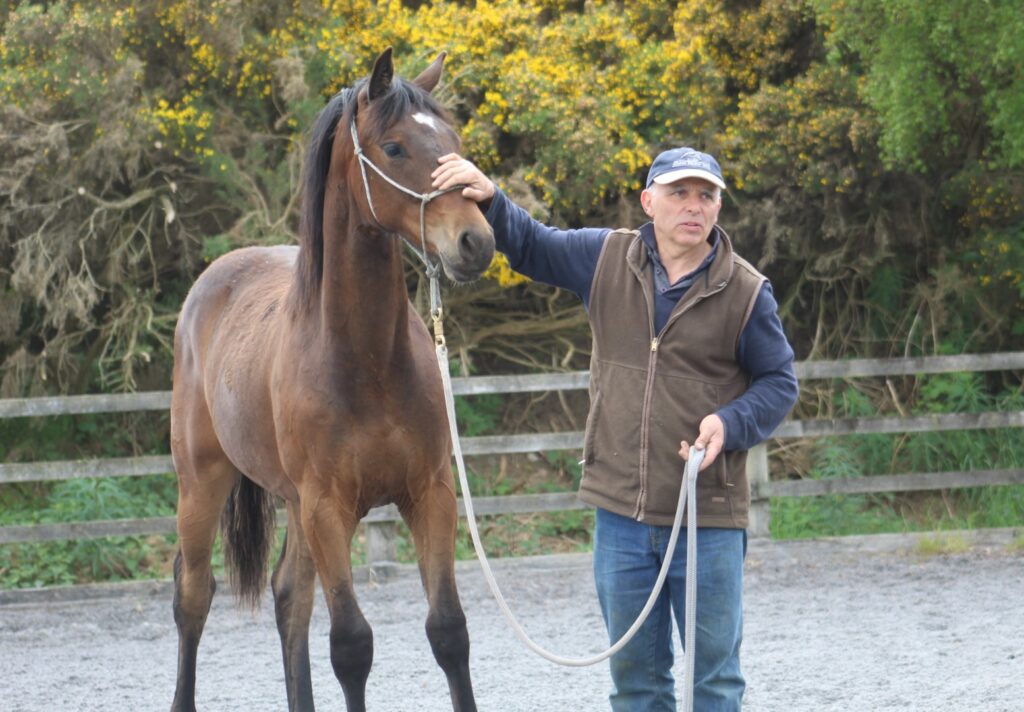
Can you lead your horse down a path beside a field of galloping horses without it pulling back, trying to gallop off or doing anything other than continuing to walk calmly beside you? If the answer is not a definite yes then there is room to change and improve your relationship with your horse. Jim has a special interest in equine behaviour having spent over 50 years learning from them and some very good horsemen he has met along the way. If you have a problem loading your horse or any issue with riding or training that you are stuck on he might be able to help. He will be happy to listen so contact him through the practice and he will help if he can.
Referrals
We have a good working relationship with many mixed practices across the north of Scotland, for whom we see referral cases in order to provide a second opinion or offer treatment with equipment not readily available in other practices. For example, we often see referral cases for sarcoid treatment, shockwave treatment of soft tissue injuries, tooth extractions, lameness investigations and a host of other things.
In many instances, your own treating vet will get in touch with us in order to refer a case. If not and you wish for one of our equine vets to see your horse, please get in touch with the office. We will need to ask your usual vet practice for the clinical history in order to see the horse.
Visiting Specialists/Consultants
We are lucky to be able to call on some of Scotland’s top specialist vets when we need them.
Professor Patrick Pollock BVMS PhD CertES (Soft Tissue) DipECVS FHEA FRCVS from Glasgow regularly visits to perform surgeries including rig castration and surgery for kissing spines, locking patella and splint bone fractures to name but a few. He also reviews some of our ongoing lameness and orthopaedic cases and provides valuable CPD for our vets.
Recently Professor John Keen BVetMed PhD Cert EM (Int Med) Dip ECEIM FRCVS, RCVS and European Specialist in Equine Internal Medicine, from Edinburgh University has visited to investigate complex medicine and cardiology cases.
Dr Richard Reardon BVetMed (Hons) MVM PhD CertES (Orth) DipECVS DipEVDC(Eq) MRCVS, European Specialist in Equine Surgery and Dentistry is a leading Equine Dental Vet in the UK and visits us a couple of times a year to help with tooth extractions which require complex surgery.
Pre-purchase examination
Pre-purchase examinations (PPE or vetting) are carried out according to a standardised 2 or 5 stage protocol laid out by the British Equine Veterinary Association (BEVA) and the Royal College of Veterinary Surgeons (RCVS). The purpose of the PPE is to assess the horse’s physical health and soundness on the day of examination which may affect it’s suitability for the intended purpose of the purchaser.
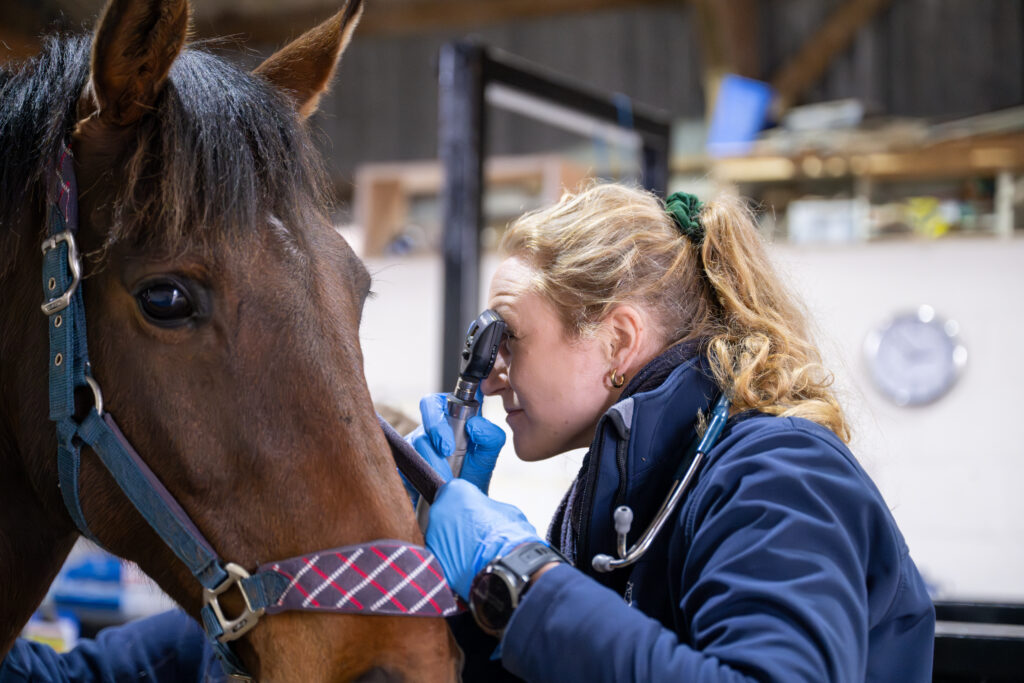
Where possible it is advisable for the purchaser to be present during the PPE. Please call the office to book a vetting.
If requested, PPE x-rays are taken at the vendor’s yard.
A blood sample can be taken, if requested, and stored with the Veterinary Defence Society (VDS) for 6 months in case of issues arising in the future which suggest that a substance may have masked a condition at the time of vetting.
A certificate of PPE may be required to insure your new horse or pony.
24 Hour emergency service
We are on hand 24/7/365 days a year to assist you and your horse in an emergency. All our on call cover is provided by our own vets so you will always see a member of the practice team.
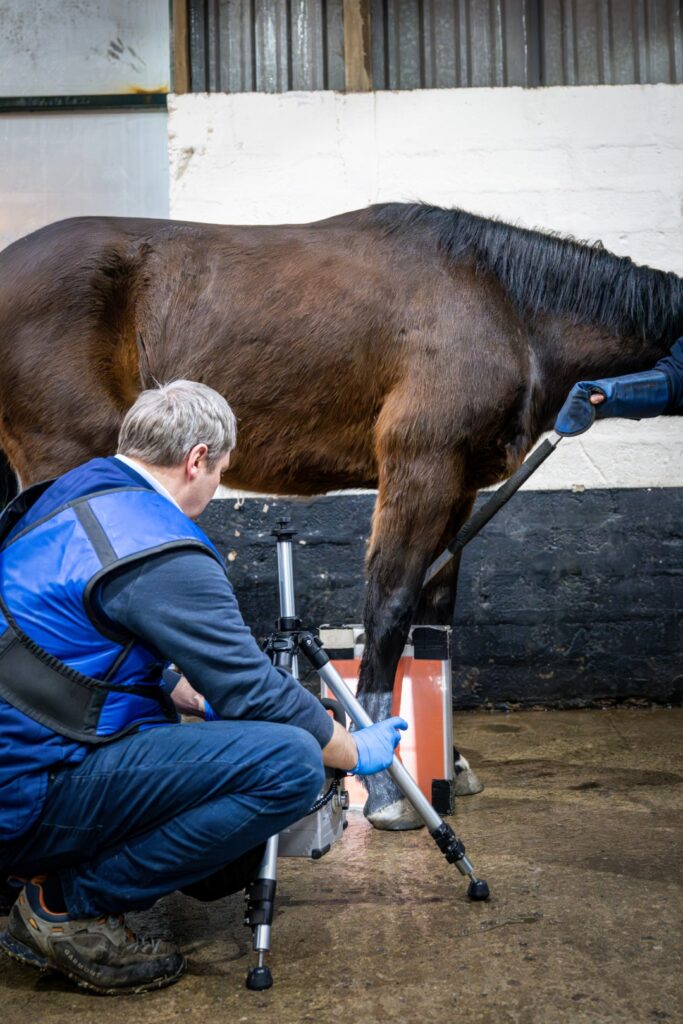
We do not normally provide emergency cover if you are not registered with our practice but will do for people outwith the area whoa re visiting with their horses. Sadly we have a few bad debts from attending new clients in emergencies. Anyone who is not registered as a client will need to pay a deposit minimum £250 before we can attend out of hours. We can take a card payment when you contact the duty vet.
